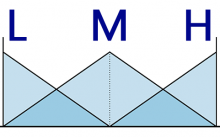Decision Support Systems (DSS) give support at all the phases of decision making process, so that both experts who participate in the decision process and managers who will use the solution obtained, will be able to use tools which automate each one of the phases that are carried out in DM.
Research Lines

The alternatives selection process in Decision Problems with several experts can lead to solutions which are not accepted by some experts, therefore the study of Consensus has become a very important research field in Decision Making.

Linguistic Decision Analysis is used to help experts to make consistent decisions in Decision Making problems whose information is assessed by means of linguistic labels. In the practice, most of Decision Making problems consist of a group of experts who are asked for their knowledge about a group of alternatives, in order to select the best one/s.

The use of the linguistic approach involves the need of carrying out processes to operate with words, so-called Computing with Words (CW). Since the 70s, the concept of CW has been widely used in different research areas. CW is a methodology which allows carrying computing and reasoning process using words which belong to a human-related language, instead of numbers.

Preference Modelling is a key activity in Decision Making Problems, irrespective of the decision area. According to their knowledge, experience and beliefs, experts must provide their assessments regarding the set of alternatives and order them according to the suitability of each alternative, as the solution to the problem.

Recommender Systems have been a key issue in the development and success of electronic commerce. The aim of this kind of software is to support users in their search processes to lead them towards interesting products by means of recommendations, showing them a list of products ordered according the degree to which they meet their needs.

Decision making is a complex and also a fundamental process for human beings. Several authors claim that decision making is one of the most important features to distinguish human beings from animals. In Decision Making we can find two different areas: (i) The selection of alternatives, whose aim is to find the best alternative or set of alternatives that can solve a decision problem, and (ii) the consensus, that measures the degree of agreement among the experts who take part in a group decision making problem.






